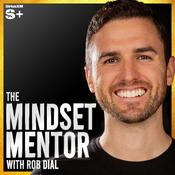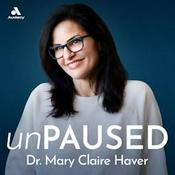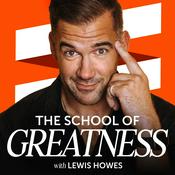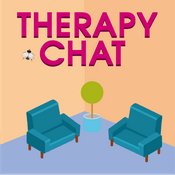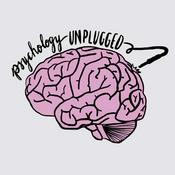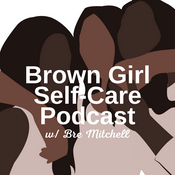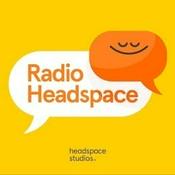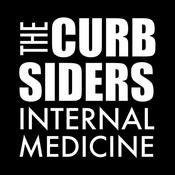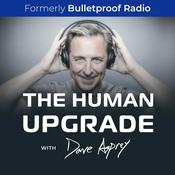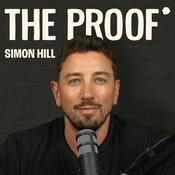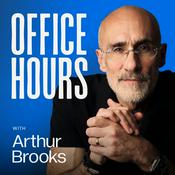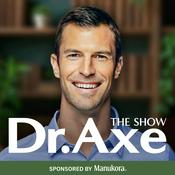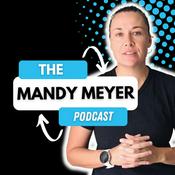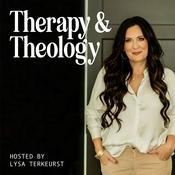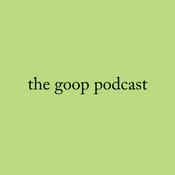87 episodes
- Welcome to PsychEd, the psychiatry podcast for medical learners, by medical learners.
This episode covers psychiatry and ethics in the Ontario context with Dr. Suze Berkhout, a clinician investigator and practicing psychiatrist working in acute inpatient psychiatry at University Health Network. She is an Associate Professor at the University of Toronto in the department of psychiatry and affiliate faculty with the Institute for the History & Philosophy of Science and Technology. Her research draws on critical creative methods in ethnography, art-science collaborations, and feminist science and technology studies, to consider the politics of diagnosis and social lives of interventions and emerging technologies in biomedicine. She works with artists, service users, clinicians and scientists to understand how serious illness experiences impact our sense of identity and our social roles, and she studies the impacts of novel and emerging technologies on experiences in healthcare settings. Suze loves coffee and finding new ways to think with stories.
The learning objectives are as follows:
1. Gain familiarity with key ethical concepts in psychiatry, including how ethics differs from law and the major ethical frameworks used in clinical reasoning.
2. Identify and analyze common ethical challenges in psychiatric practice, such as autonomy, confidentiality, boundaries, and justice.
3. Apply practical strategies for ethical decision-making in clinical encounters.
Guest: Dr. Suze Berkhout
Hosts: Dr. Matthew Cho (PGY1), Dr. Annie Yu (PGY4) and Sena Gok (MD)
Audio Editing: Angad Singh (PGY2) - Welcome to PsychEd, the psychiatry podcast for medical learners, by medical learners. This short episode covers the basics of sleep hygiene.
Hosts: Jo Kikukawa (MS2) and Grant Yao (MS4)
Audio editing: Grant Yao
Timestamps:
(0:33) - Background
(2:07) - Core principles and strategies
(5:37) - Counselling on sleep
(6:18) - When to get help with sleep
(7:29) - Summary
References:
Centre for Addiction and Mental Health. Sleep disorders. CAMH.
Harvard Health Publishing. Sleep hygiene: Simple practices for better rest. Harvard Health.
Qaseem A, Kansagara D, Forciea MA, Cooke M, Denberg TD. Management of chronic insomnia disorder in adults: A clinical practice guideline from the American College of Physicians. Ann Intern Med. 2016;165(2):125–133.
Sleep Foundation. Sleep hygiene. SleepFoundation.org.
Spielman AJ, Caruso LS, Glovinsky PB. Behavioral treatment of insomnia: A clinical case series. Sleep. 1987;10(1):87–92.
For more PsychEd, follow us on Instagram (@psyched.podcast), Facebook (PsychEd Podcast), X (@psychedpodcast), and Bluesky (@psychedpodcast.bsky.social). You can email us at [email protected] and visit our website at psychedpodcast.org. - Welcome to PsychEd, the psychiatry podcast for medical learners, by medical learners. This short episode covers Types of Substances
Hosts: Sara Abrahamson, Shaoyuan Wang and Kate Braithwaite.
Audio Editing: Kate Braithwaite
References:
American Psychiatric Association. Diagnostic and statistical manual of mental disorders: DSM-5, text revision (DSM-5-TR). 5th ed. Washington, D.C.: American Psychiatric Association Publishing; 2022.
CAMH. (2013). Inhalants. Inhalants | CAMH
CAMH. (2010). Cocaine and Crack. https://www.camh.ca/en/health-info/mental-illness-and-addiction-index/cocaine
CAMH. (2012). Amphetamines. https://www.camh.ca/en/health-info/mental-illness-and-addiction-index/amphetamines#:~:text=Chronic%20use%20of%20amphetamines%20can,can%20also%20cause%20amphetamine%20psychosis.
Chae J, Marsden J and Sutherland A. (2024, August 21). Benzodiazepine Withdrawal. Emergency Care BC. Benzodiazepine Withdrawal : Emergency Care BC
ChildHealthBC. (2023, September 21). Common Street names for Substances. https://childhealthbc.ca/mhsu/common_streetnames_substances/printfile
Jauch EC. (2023, January 18) Inhalants Clinical Presentation. Medscape. Inhalants Clinical Presentation: History, Physical, Causes
Kaye, AD, Staser, AN, Mccollins, TS, Zheng, J, Berry, FA, Burroughs, CR, Heisler, M, Mouhaffel, A, Ahmadzadeh, S, Kaye, AM, Shekoohi, S, & Varrassi, G. (2024). Delirium Tremens: A Review of Clinical Studies. Cureus, 16(4), e57601. https://doi.org/10.7759/cureus.57601
Long N. (2020, November 3). GHB toxicity. Life in the Fast Lane. GHB toxicity • LITFL • Toxicology Library Toxicant
Medx. (2025, November 26). Understanding What is the MOA of Alcohol: A Pharmacological Perspective. What is the MOA of Alcohol? Explained: Receptors and Effects
Mendelson, J. H., & Mello, N. K. (1996). Management of cocaine abuse and dependence. The New England journal of medicine, 334(15), 965–972. https://doi.org/10.1056/NEJM199604113341507
Nichols DE. Hallucinogens. Pharmacol Ther. 2004 Feb;101(2):131-81. doi: 10.1016/j.pharmthera.2003.11.002.
Nickson C. (2024, December 18). Sedative toxidrome. Life in the Fast Lane. Sedative Toxidrome • LITFL • CCC Toxicology
Porter RS, Kaplan JL, Homeier BP, editors. The Merck manual of diagnosis and therapy. 20th ed. Kenilworth (NJ): Merck Sharp & Dohme; 2018.
PsychDB. (2021, March). Opioid Intoxication. Opioid Intoxication - PsychDB
PsychDB. (2023, October). Opioid Withdrawal. Opioid Withdrawal - PsychDB
PsychDB. (2023 February). Cannabis Withdrawal. Cannabis Withdrawal - PsychDB
Roth BL, Gumpper RH. Psychedelics as Transformative Therapeutics. Am J Psychiatry. 2023 May 1;180(5):317-20.
Vollenweider FX, Kometer M. The neurobiology of psychedelic drugs: implications for the treatment of mood disorders. Nat Rev Neurosci. 2010 Sep;11(9):642-51. doi: 10.1038/nrn2884. - Welcome to PsychEd, the psychiatry podcast for medical learners, by medical learners.
This episode covers the psychiatric case presentation with Dr. Justin Delwo, a staff psychiatrist at Toronto Western Hospital where he works in the emergency department and urgent care settings.
The learning objectives for this episode are as follows:
What is the goal of a psychiatric case presentation?
What are some ground rules for a case presentation?
What are the key sections of a case presentation and what should you include under each?
How can you tailor your case presentation to the setting
Guest: Dr. Justin Delwo
Hosts: Dr. Matt Cho (PGY1), Dr. Daamoon Ghahari (PGY2), and Dr. Angad Singh (PGY2)
Audio editing: Dr. Angad Singh (PGY2)
Episode evaluation: Shelly Palchik (MS4)
Time Stamps:
(1:50) - Goals of a case presentation
(4:49) - Ground rules for presenting
(7:56) - General overview
(19:44) - Identifying Data
(23:16) - Chief complaint and reason for referral
(25:42) - History of presenting illness
(38:38) - Review of systems
(42:16) - Safety
(49:42) - Past psychiatric history
(53:54) - Medications
(55:55) - Past medical history
(59:14) - Allergies
(1:00:13) - Family psychiatric history
(1:02:07) - Personal history
(1:06:23) - Mental status exam
(1:09:45) - Impression
(1:14:20) - Plan
(1:18:43) - Tailoring to different settings
For more PsychEd, follow us on Instagram (@psyched.podcast), Facebook (PsychEd Podcast), X (@psychedpodcast), and Bluesky (@psychedpodcast.bsky.social). You can email us at [email protected] and visit our website atpsychedpodcast.org. - Welcome to PsychEd, the psychiatry podcast for medical learners, by medical learners. This short episode covers how to take a substance use history
Hosts: Dr. Andrew Nguyen, Dr. Zakia Hussain, Jo Kikukawa, and Dr. Kate Braithwaite.
Audio editing: Dr. Kate Braithwaite
Resources:
Chapter 4: Substance Use and Addictive Disorders. In Kaplan & Sadock’s Synopsis of Psychiatry: Behavioral Sciences
Meta:Phi Resource Library
Ten Domains of De-escalation to Prevent Behavioural Emergencies (from Alberta Health Services)
References:
American Psychiatric Association Publishing. (2022). Substance-Related and Addictive Disorders. In Diagnostic and Statistical Manual of Mental Disorders: Fifth Edition, Text Revision: DSM-5-TR (5th ed., pp. 481-590). American Psychiatric Association Publishing.
Boland, R.J., Verduin, M.L., & Ruiz, P. (2022). Chapter 4: Substance Use and Addictive Disorders. In Kaplan & Sadock’s Synopsis of Psychiatry: Behavioral Sciences, Clinical Psychiatry (12th ed., pp. 269 - 336). Wolters Kluwer.
Porter, L.D. Getting to the Good Part: How to Take an Engaging SUD History. [Presentation Transcript]. University of California, Los Angeles Integrated Substance Use and Addictions Programs. https://www.uclaisap.org/clinicalproviderquicktips/docs/La-Donna-Porter/Porter_LD_Transcript_Clean.pdf
Welsh, C.J. “Trapped”: A Mnemonic for Taking a Substance Use History. Acad Psychiatry 27, 289 (2003). https://doi.org/10.1176/appi.ap.27.4.289
For more PsychEd, follow us on Instagram (@psyched.podcast), Facebook (PsychEd Podcast), X (@psychedpodcast), and Bluesky (@psychedpodcast.bsky.social). You can email us at [email protected] and visit our website at psychedpodcast.org.
More Health & Wellness podcasts
Trending Health & Wellness podcasts
About PsychEd: Educational Psychiatry Podcast
This podcast is written and produced by psychiatry residents at the University of Toronto and is aimed at medical students and residents. Listeners will learn about fundamental and more advanced topics in psychiatry as our resident team explore these topics with world-class psychiatrists at U of T and abroad.
Podcast websiteListen to PsychEd: Educational Psychiatry Podcast, The Wellness Scoop and many other podcasts from around the world with the radio.net app
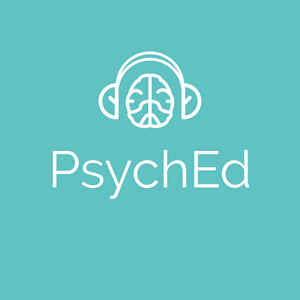
Get the free radio.net app
- Stations and podcasts to bookmark
- Stream via Wi-Fi or Bluetooth
- Supports Carplay & Android Auto
- Many other app features
Get the free radio.net app
- Stations and podcasts to bookmark
- Stream via Wi-Fi or Bluetooth
- Supports Carplay & Android Auto
- Many other app features


PsychEd: Educational Psychiatry Podcast
Scan code,
download the app,
start listening.
download the app,
start listening.




